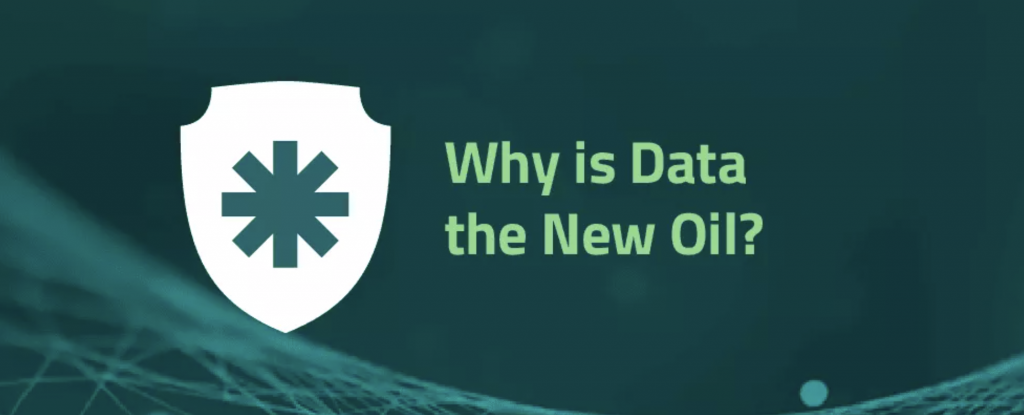Category: VENDORSNEWSSegura News

Performing any task today is much easier than it was a few years ago. With the evolution of technology, the consumer can make purchases faster and more practical, receive optimized ads – which help a lot when purchasing something -, social networks with features that follow the biggest trends, ease of payments and banking transactions, among others.
On the other hand, in exchange for all this comfort, the customer provides their data, which will be used as a resource/raw material by the companies. In this “win-win” relationship, the company makes life easier for customers through the use of data, but also exponentially increases its profits.
Thus, there is much debate among specialists about the reciprocity of this relationship, considering the power and value of data today. Far from being just good things, just like at the time of the industrial revolution, the information and data age also brings some problems, which are constantly debated in search of the best solution within the current scenario.
Such problems revolve around ethical and security issues in the use of data, since not all consumers are fully aware of how their data is used by companies and the great effort to protect this data from hackers, since the Internet is a place “where everyone treads”.
This concern around data integrity is yet another aspect that emphasizes how valuable this resource is to society as a whole. In this article, we will explain the value of data in the information world and the main reasons why it is an essential part of a business strategy. We invite you to keep reading the article and find out why data is the new oil.
Saying that data is the new oil is a smart and simple way to get a sense of where we are standing. However, the author of the statement himself, Ajay Banga, Mastercard’s CEO, added that data is even more valuable than oil, considering that oil is a scarce and finite resource, while data is inexhaustible and only increases.
Furthermore, they can be continuously reused, even after being transformed, to generate new information, while oil is discarded after its transformation. That is, the more data, the more information is generated and the more valuable it becomes.
Most people are aware of the contribution of their data to the economy, but not everyone knows or can measure this value, which leads many people to lose interest in the value of their personal data. Also, the benefits offered “free of charge” by companies work as a form of payment to the user for providing their data, who perceives the exchange as fair.
Nevertheless, this “bargaining” relationship is not always voluntary, since, with the new privacy policies, some companies “force” users to grant permission on their personal data if they want to continue using their tool.
This only increases the users’ lack of control over their data, because between making them available and losing access to the tools’ benefits, the first option seems more sensible. In short, concerning data in the relationship between company and users, everyone wins, but disproportionately.
With the new data protection laws in the countries, a company that fails to comply with regulations or puts customer and user data at risk is punished with huge fines.
This is because personal data such as name, age and date of birth, IP address, or sensitive information such as religious and ideological beliefs, health information, genetic and biometric data, for example, can be used for various purposes, from optimizing/customizing the use of a tool by the customer to increasing the company’s sales or as a criminal weapon.
Therefore, privacy policies are full of strict requirements imposed on companies that work with data collection and storage.
It is important to understand that, from an organization’s point of view, for example, having the raw material is not enough, that is, it is not enough just to obtain the data, but to know how to handle and manage them properly in order to obtain information that generates value.
The consequence of this is valuable returns for companies, both financially and in areas that have an impact on the world. The company that manages to get this increases competitiveness, productivity, and stands out from the crowd.
So, it is not the data itself that makes it so important to companies, but the information and value that can be generated from it.
In this sense, having a good data management policy today is essential for organizations, since, unlike a few years ago, when companies were working with hypotheses to analyze the competition and achieve customer preference, nowadays, data provides us with concrete, accurate information that, when handled correctly, helps drive the business forward.
Therefore, good data management favors:
Data is changing the world, as everything that can be done from exploiting it and the fact it is inexhaustible and reusable makes this resource even more valuable than oil.
With the data revolution, not only do companies change the way they work, but the population also changes the way they think and act in society. The trend is for this to increase in the near future.
However, before appropriating this comparison of data with oil and trying to be part of this revolution, it is necessary to bear in mind that not all countries get rich from the sale of oil, and one of the reasons is the poor management of the resource.
With data, it is no different. In this race towards evolution, as Yuval Noah Harari says in the book 21 Lessons For The 21st Century, “those who have the data own the future”, and those who are aware of it and make the best use of them lead the way.
Category: VENDORSNEWSSegura News
